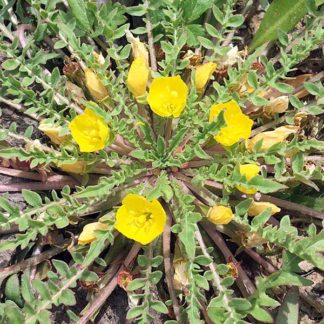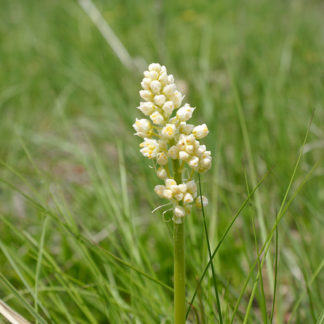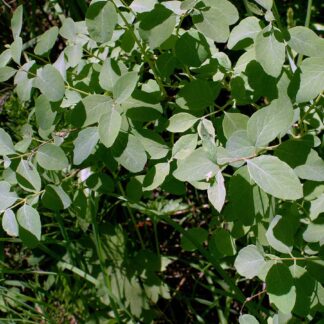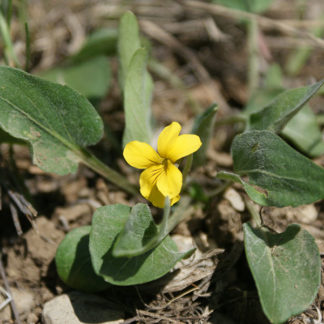nutrient poor soils
Showing 61–67 of 67 results
-

Shepherdia canadensis / Canadian buffaloberry
- deciduous shrub, opposite branches and leaves; understory
- trichomes (hairs) on lower, often upper surfaces.
- lower surface has rust-colored scales
- teeny yellowish flowers before leaves appear; male and female on separate plants
- red or orange, oval fruits with one stony seed; soapy when crushed
-

Stenotus acaulis / stemless goldenweed
- very short, mat forming perennial yellow "daisy"
- thin, lance-shaped leaves, pointing upward
- yellow flower head with 6-15 ray florets, up to 50 disk florets
- in dry, rocky, open-scrub habitats
-

Taraxia tanacetifolia / tansyleaf evening primrose
- single, sessile, bright yellow, cup shaped flowers; 4 petals
- grows as a rosette, flat to the ground
- leaves are up to 12 inches long; very deeply lobed
- still blooming in mid-October; starts in mid summer
- grows on sandy/gravelly soil, e.g. drying lake beds
-

Toxicoscordion venenosum / meadow death camas
- cream to greenish-white flowers - somewhat triangular overall
- branched flowering stem with multiple flowers in a compact pyramidal head
- 6 tepals (petals + sepals), greenish-yellow nectar glands
- grass/lily-like leaves
- blooms early in the season
-

Trifolium repens / white clover
- the quintessential 3-leaf clover
- white flower heads, tinged with pink (perhaps)
- found in full sun with little other specific requirements
- four leaflet leaves bring good luck
-

Vaccinium membranaceum / thinleaf huckleberry
- understory shrub, locally dominant
- oval, alternate leaves
- very small white/pink urn-shaped flowers
- flowers in axils on red/yellow new growth
- fruit - a bluish/purple to black, ¼" berry
-

Viola vallicola / sagebrush violet
- early, bright yellow violet, usually in sagebrush
- lanceolate leaves with long petioles
- moderate purplish "pencilling" on lower petal; 1-2 lines on side petals
- back sides of petals usually yellow (not brown)
Showing 61–67 of 67 results